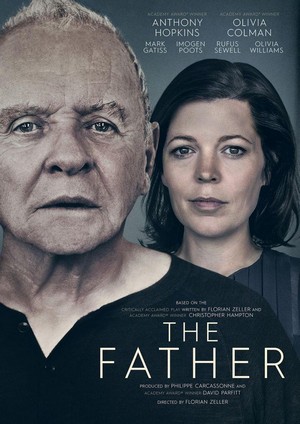
The Father (2020)

Raiting: ![]() 8,2 /10
8,2 /10
Genre: Drama
Director: Florian Zeller
Stars: Anthony Hopkins, Olivia Colman and Mark Gatiss
Country: United Kingdom / France / United States
Release date: 23 December 2020
Length: 97 minutes


Raiting: ![]() 8,2 /10
8,2 /10
Genre: Drama
Director: Florian Zeller
Stars: Anthony Hopkins, Olivia Colman and Mark Gatiss
Country: United Kingdom / France / United States
Release date: 23 December 2020
Length: 97 minutes